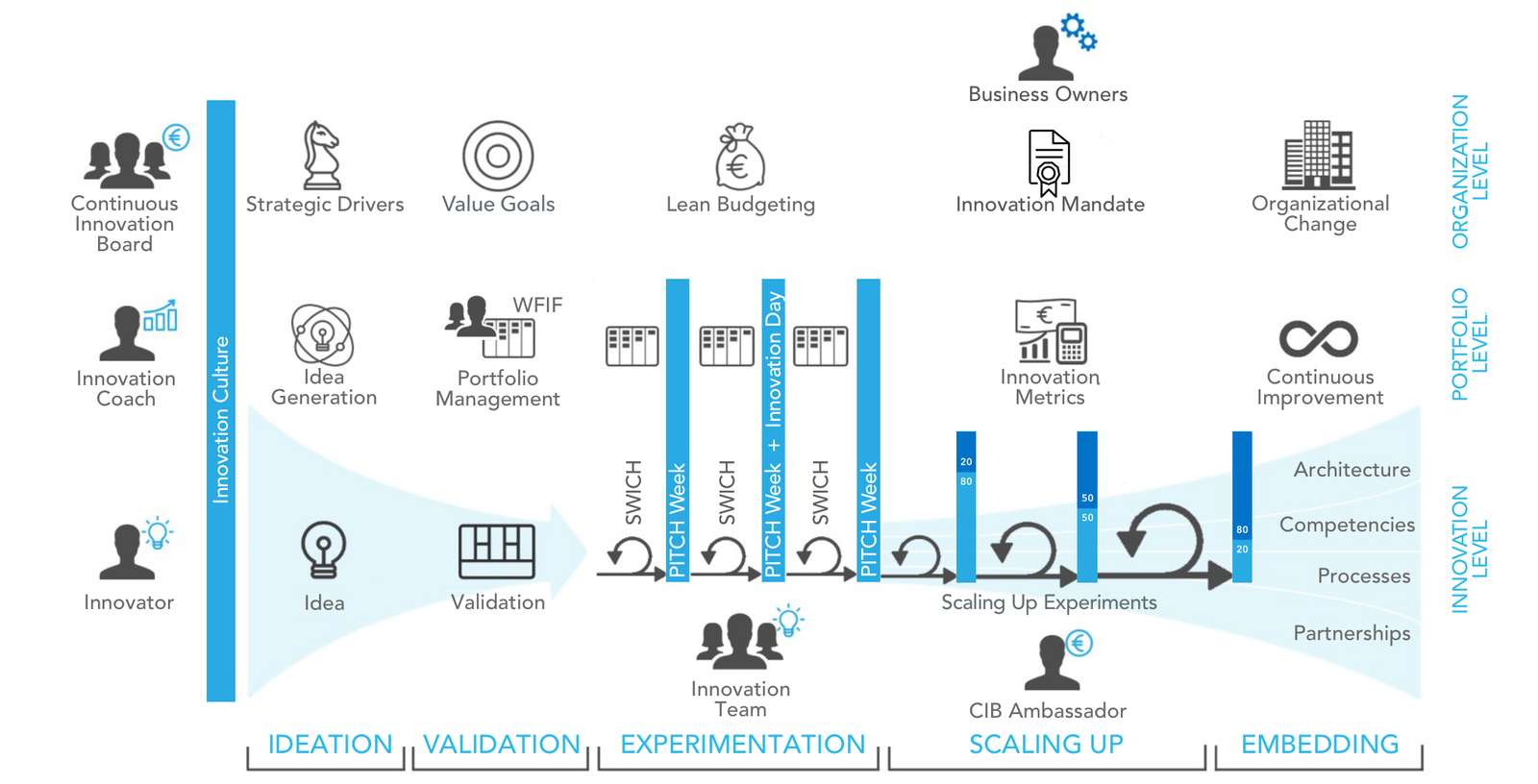Machine Learning Career Path Skills and Salary Guide
Discover the complete machine learning career path guide with essential skills, salary insights, and a step-by-step roadmap to success in 2025

The machine learning career path has emerged as one of the most lucrative and rapidly growing fields in technology, offering unprecedented opportunities for professionals seeking to shape the future of artificial intelligence. As businesses across industries increasingly rely on data-driven decision-making and automation, the demand for skilled machine learning engineers and specialists continues to soar, creating a dynamic job market with exceptional earning potential.
In today’s digital landscape, machine learning careers span diverse sectors from healthcare and finance to entertainment and autonomous vehicles, each requiring unique combinations of technical expertise and domain knowledge. The field encompasses various roles, including data scientists, ML engineers, research scientists, and AI architects, each offering distinct career trajectories and compensation packages. Recent industry reports indicate that machine learning engineer salaries have experienced significant growth, with average compensation ranging from $135,000 to $215,000 annually in the United States alone.
The journey into machine learning requires a strategic approach to skill development, combining mathematical foundations, programming proficiency, and practical experience with real-world datasets. Success in this field demands continuous learning and adaptation, as emerging technologies like deep learning, neural networks, and generative AI constantly reshape industry requirements. Whether you’re a recent graduate exploring entry-level machine learning jobs or an experienced professional considering a career transition, the essential skills, educational pathways, and market dynamics are crucial for long-term success.
This comprehensive guide will navigate you through the complete machine learning career path, from foundational skills and educational requirements to advanced specializations and salary expectations. We’ll explore the most in-demand programming languages for machine learning, essential mathematical concepts, and practical steps to build a competitive portfolio that attracts top-tier employers in this exciting and rapidly evolving field.
The Machine Learning Career Landscape
The machine learning industry has experienced explosive growth over the past decade, transforming from a niche academic discipline into a cornerstone of modern business strategy. This evolution has created a diverse ecosystem of career opportunities that cater to various skill sets, interests, and professional backgrounds.
Current Market Demand
The demand for machine learning professionals continues to outpace supply, creating favorable conditions for both job seekers and salary negotiations. Companies across sectors are actively seeking talent capable of implementing AI solutions, from startups developing innovative algorithms to Fortune 500 corporations modernizing their operations through intelligent automation.
Machine learning jobs now encompass roles in traditional technology companies, financial institutions, healthcare organizations, manufacturing firms, and government agencies. This widespread adoption has led to specialized positions tailored to industry-specific needs, such as algorithmic trading specialists in finance, computer vision engineers in autonomous vehicles, and natural language processing experts in healthcare informatics.
Emerging Specializations
The machine learning career path has branched into numerous specializations, each offering unique challenges and rewards. Deep learning specialists focus on neural networks and complex pattern recognition, while MLOps engineers concentrate on deploying and maintaining machine learning systems in production environments. Research scientists advance the theoretical foundations of AI, and applied machine learning engineers translate cutting-edge research into practical business solutions.
These specializations reflect the maturation of the field, where professionals can develop deep expertise in specific areas while maintaining a broad understanding of Machine Learning Career principles. The most successful practitioners often combine technical depth in their chosen specialization with strong communication skills and business acumen, enabling them to bridge the gap between technical possibilities and organizational objectives.
Essential Technical Skills for Machine Learning Careers
Building a successful machine learning career requires mastering a comprehensive set of technical skills that form the foundation for advanced AI development and implementation. These skills range from fundamental programming concepts to specialized machine learning frameworks and tools.
Programming Languages

Python stands as the most critical programming language for machine learning, offering an extensive ecosystem of libraries and frameworks specifically designed for AI development. Its simplicity and readability make it accessible to beginners while providing the power and flexibility needed for complex machine learning projects. Essential Python libraries include NumPy for numerical computing, Pandas for data manipulation, Scikit-learn for traditional machine learning algorithms, and TensorFlow or PyTorch for deep learning applications.
R serves as another vital language, particularly for statistical analysis and data visualization. Its comprehensive statistical packages and plotting capabilities make it indispensable for exploratory data analysis and research-oriented projects. Many machine learning professionals leverage R for initial data exploration before transitioning to Python for model implementation and deployment.
SQL remains fundamental for data extraction and database management, as most real-world Machine Learning Career projects involve working with structured data stored in relational databases. Proficiency in SQL enables efficient data querying, aggregation, and preprocessing, which typically consumes the majority of time in machine learning projects.
Java and Scala find application in large-scale distributed computing environments, particularly when working with Apache Spark for big data processing. These languages offer superior performance for enterprise-level machine learning systems handling massive datasets and requiring high throughput and low latency.
Mathematical Foundations
Linear algebra forms the mathematical backbone of machine learning algorithms, underlying operations in neural networks, dimensionality reduction, and optimization techniques. Matrices, vectors, eigenvalues, and singular value decomposition are essential for comprehending how algorithms process and transform data.
Statistics and probability provide the theoretical framework for uncertainty, making predictions, and evaluating model performance. Concepts such as Bayes’ theorem, hypothesis testing, confidence intervals, and probability distributions are fundamental to Machine Learning Career methodology.
Calculus, particularly multivariable calculus and optimization theory, enables gradient descent algorithms and backpropagation in neural networks. While many practitioners rely on automated differentiation tools, a solid grasp of calculus principles enhances algorithm comprehension and debugging capabilities.
Machine Learning Frameworks and Tools
TensorFlow and PyTorch represent the leading frameworks for deep learning development, each offering unique advantages for different use cases. TensorFlow provides excellent production deployment tools and mobile optimization, while PyTorch offers more intuitive debugging and research-oriented features.
Scikit-learn serves as the standard library for traditional machine learning algorithms, offering consistent APIs for classification, regression, clustering, and dimensionality reduction tasks. Its comprehensive documentation and examples make it ideal for both learning and rapid prototyping.
Cloud platforms such as Amazon Web Services (AWS), Google Cloud Platform (GCP), and Microsoft Azure provide scalable infrastructure for machine learning projects. Familiarity with cloud-based ML services, container technologies like Docker, and orchestration tools like Kubernetes is increasingly important for deploying production systems.
Educational Pathways and Qualifications
The Machine Learning Career path offers multiple educational routes, accommodating diverse backgrounds and learning preferences. While traditional computer science degrees provide strong foundations, the field’s interdisciplinary nature means successful professionals come from various academic backgrounds, including mathematics, physics, engineering, and domain-specific fields.
Formal Education Options
Bachelor’s degrees in Computer Science, Data Science, or related fields provide a comprehensive foundation in programming, algorithms, and mathematical concepts essential for a Machine Learning Career. These programs typically include coursework in data structures, algorithms, statistics, and linear algebra, along with practical programming experience in languages like Python and Java.
Master’s degrees in Machine Learning Career, Artificial Intelligence, or Data Science offer specialized training and advanced coursework in ML algorithms, deep learning, and research methodologies. Many programs include capstone projects or thesis work that provide hands-on experience with real-world problems and datasets.
PhD programs prepare students for research-oriented careers in academia or industry research labs. These programs emphasize original research, theoretical, and the development of novel algorithms or applications. PhD graduates often pursue roles as research scientists, principal engineers, or technical leaders in major technology companies.
Alternative Learning Paths
Online courses and MOOCs from platforms like Coursera, edX, and Udacity provide flexible, accessible paths to Machine Learning Career education. Many courses are taught by leading researchers and practitioners from top universities and technology companies, offering high-quality education at a fraction of traditional program costs.
Professional certifications from organizations like Google, AWS, and Microsoft validate specific skills and knowledge in machine learning and cloud platforms. These certifications demonstrate practical competency and commitment to professional development, often carrying significant weight with employers.
Bootcamps and intensive programs offer accelerated paths to a Machine Learning Career, typically ranging from 12 to 24 weeks. These programs focus on practical skills and project-based learning, preparing students for entry-level machine learning jobs through intensive, hands-on training.
Self-Directed Learning
Many successful Machine Learning Career professionals are largely self-taught, leveraging online resources, textbooks, and practical projects to build their expertise. This approach requires strong self-discipline and motivation but offers maximum flexibility and customization to individual learning styles and career goals.
Key resources for self-directed learning include influential textbooks like “Pattern Recognition and Machine Learning” by Bishop, “The Elements of Statistical Learning” by Hastie, Tibshirani, and Friedman, and “Deep Learning” by Goodfellow, Bengio, and Courville. Open-source projects and Kaggle competitions provide opportunities for practical application and community engagement.
Machine Learning Career Roles and Specializations
The Machine Learning Career path encompasses diverse roles that cater to different skill sets, interests, and career objectives. These various positions help professionals identify their ideal career trajectory and develop relevant skills accordingly.
Machine Learning Engineer
Machine learning engineers serve as the backbone of AI implementation, responsible for designing, building, and deploying machine learning systems in production environments. These professionals combine software engineering expertise with machine learning knowledge to create scalable, reliable AI solutions that meet business requirements.
Key responsibilities include data preprocessing and feature engineering, model selection and training, system architecture design, and performance optimization. Machine learning engineers work closely with data scientists to transform experimental models into production-ready systems, ensuring scalability, reliability, and maintainability.
Machine learning engineer salaries typically range from $120,000 to $200,000 annually for mid-level positions, with senior engineers and those at major technology companies earning significantly more. The role requires strong programming skills, knowledge of distributed systems, and experience with cloud platforms and MLOps practices.
Data Scientist
Data scientists focus on extracting insights from data through statistical analysis, machine learning, and domain expertise. They identify business problems that can be solved through data analysis, design experiments, and communicate findings to stakeholders through visualizations and reports.
The role combines technical skills in programming languages like Python and R with business acumen and communication abilities. Data scientists often serve as translators between technical teams and business stakeholders, ensuring that analytical insights drive actionable business decisions.
Career progression for data scientists typically involves specialization in specific domains or advancement to senior roles such as principal data scientist or head of data science. Compensation varies widely based on experience and location, with salaries ranging from $95,000 to $180,000 for experienced professionals.
Research Scientist
Research scientists in machine learning focus on advancing the theoretical foundations and practical capabilities of AI systems. These positions are primarily found in technology companies’ research divisions, government laboratories, and academic institutions.
Responsibilities include conducting original research, publishing papers in peer-reviewed venues, and developing novel algorithms or applications. Research scientists typically hold PhD degrees and have strong backgrounds in mathematics, statistics, or computer science.
The role offers intellectual fulfillment and the opportunity to shape the future of AI technology. Machine Learning Career research scientists at major companies can earn $200,000 to $400,000 annually, reflecting the high value placed on cutting-edge research capabilities.
Specialized Roles
Computer Vision Engineers focus on applications involving image and video analysis, including object detection, facial recognition, and autonomous vehicle navigation. This specialization requires expertise in convolutional neural networks, image processing techniques, and domain-specific challenges.
Natural Language Processing (NLP) Specialists work with text and speech data, developing systems for language translation, sentiment analysis, chatbots, and voice assistants. The field has experienced rapid advancement with transformer architectures and large language models.
MLOps Engineers specialize in the operational aspects of machine learning, focusing on deployment, monitoring, and maintenance of ML systems. This emerging role bridges the gap between machine learning development and production operations, ensuring reliable and scalable AI implementations.
Salary Insights and Compensation Trends
The Machine Learning Career field offers exceptional compensation packages that reflect the high demand for skilled professionals and the strategic value of AI capabilities to modern businesses. Salary levels vary significantly based on factors including experience, location, company size, and specialization area.
Entry-Level Positions
Entry-level machine learning jobs typically offer starting salaries between $70,000 and $95,000 annually, providing strong financial foundations for new graduates and career changers. These positions often include additional benefits such as stock options, comprehensive health insurance, and professional development opportunities.
Geographic location significantly impacts starting salaries, with major technology hubs like San Francisco, Seattle, and New York offering higher compensation to offset increased living costs. Remote work opportunities have somewhat normalized geographic salary differences, though location-based adjustments remain common.
Machine learning engineer positions at the entry level focus on implementing existing algorithms and working under senior guidance to gain practical experience. Career progression is typically rapid for high-performing individuals, with opportunities for advancement within 2-3 years.
Mid-Career Professionals
Mid-career machine learning professionals with 3-7 years of experience command salaries ranging from $120,000 to $180,000, reflecting increased expertise and proven track records of successful project delivery. These professionals often lead small teams, mentor junior staff, and take ownership of complete project lifecycles.
Specialization in high-demand areas such as deep learning, computer vision, or NLP can command premium salaries, with specialists earning 15-25% more than generalists. Companies particularly value professionals who combine technical depth with business and communication skills.
Career advancement at this level often involves choosing between individual contributor tracks focused on technical excellence or management tracks leading larger teams and strategic initiatives. Both paths offer substantial compensation growth and professional fulfillment.
Senior and Leadership Roles
Senior machine learning engineers and specialists with 8+ years of experience typically earn $200,000 to $350,000 annually, plus substantial equity compensation at growth-stage companies. These roles involve strategic decision-making, architecture design, and technical leadership of major initiatives.
Leadership positions such as Head of Machine Learning, VP of AI, or Chief Data Officer can command total compensation packages exceeding $500,000 annually at major technology companies. These roles require combining deep technical expertise with strategic vision and people management capabilities.
Industry and Company Factors
Machine learning engineer salaries vary significantly across industries, with technology companies generally offering the highest compensation. Financial services, healthcare technology, and autonomous vehicle companies also provide competitive packages to attract top talent.
Company stage and size influence compensation structures, with established technology giants offering higher base salaries and comprehensive benefits, while startups provide equity upside potential and greater responsibility opportunities. Many professionals strategically navigate between different company types throughout their careers to maximize both compensation and experience diversity.
Building Your Machine Learning Portfolio
A compelling portfolio serves as the cornerstone of a successful Machine Learning Career, demonstrating practical skills, problem-solving abilities, and domain expertise to potential employers. An effective portfolio showcases diverse projects that highlight different aspects of machine learning competency while reflecting genuine passion for the field.
Project Selection Strategy
Successful Machine Learning Career portfolios include projects spanning different problem types, algorithms, and application domains. Include at least one supervised learning project demonstrating classification or regression capabilities, one unsupervised learning project showing clustering or dimensionality reduction skills, and one end-to-end project showcasing the complete machine learning pipeline from data collection to deployment.
Choose projects that align with your target career specialization while demonstrating breadth of knowledge. Computer vision aspirants should include image classification or object detection projects, while NLP specialists should showcase text analysis or language model applications. Ensure projects use different datasets and techniques to demonstrate versatility and learning agility.
Real-world relevance significantly enhances portfolio impact. Address genuine business problems or societal challenges rather than using toy datasets exclusively. Projects solving practical problems demonstrate your ability to identify opportunities, formulate appropriate solutions, and deliver value in professional settings.
Technical Implementation
Document your programming language proficiency through clean, well-commented code that follows industry best practices. Use version control systems like Git to demonstrate professional development workflows, and include comprehensive README files explaining project objectives, methodologies, and results.
Implement projects using industry-standard frameworks and tools, showcasing familiarity with TensorFlow, PyTorch, Scikit-learn, and relevant libraries. Include code for data preprocessing, feature engineering, model training, evaluation, and visualization to demonstrate comprehensive technical competency.
Deploy at least one project using cloud platforms or web frameworks, showing the ability to translate models from development environments to production-ready systems. This demonstrates practical deployment challenges and MLOps principles increasingly valued by employers.
Documentation and Presentation
Create detailed project documentation that explains your thought process, methodology, and insights gained throughout development. Include sections on problem formulation, exploratory data analysis, algorithm selection rationale, and results interpretation.
Use data visualization effectively to communicate findings and demonstrate your ability to extract and present insights from complex datasets. Create compelling visualizations that support your narrative and highlight key discoveries or model performance metrics.
Blog posts or technical articles about your projects demonstrate communication skills and thought leadership. Publish content on platforms like Medium, LinkedIn, or personal websites to build your professional brand and establish expertise in specific domains or techniques.
Continuous Portfolio Evolution

Regularly update your portfolio with new projects that reflect evolving skills and interests. Archive older projects that no longer represent your current capabilities, maintaining a curated collection of your best work that effectively communicates your professional value proposition.
Seek feedback from Machine Learning Career in your network and incorporate suggestions for improvement. Participate in code reviews, contribute to open-source projects, and engage with the broader ML community to continuously refine your technical and presentation skills.
Networking and Professional Development
Success in a Machine Learning Career depends significantly on building strong professional networks, staying current with rapidly evolving technologies, and actively participating in the broader AI community. Strategic networking opens doors to job opportunities, collaborative projects, and mentorship relationships that accelerate career growth.
Industry Engagement
Attend Machine Learning Career conferences such as NeurIPS, ICML, and industry-specific events to learn about cutting-edge research and connect with leading practitioners. These events provide opportunities to meet potential employers, collaborators, and mentors while staying current with technological advances.
Participate in local meetups and professional organizations related to data science, AI, and machine learning. Many cities host regular gatherings where professionals share experiences, discuss challenges, and build relationships. Virtual events have expanded access to global communities regardless of geographic location.
Online communities like Reddit’s r/MachineLearning, Stack Overflow, and specialized Discord servers provide platforms for asking questions, sharing knowledge, and building professional relationships. Active participation demonstrates expertise and helps establish a reputation within the community.
Skill Development
Continuous Machine Learning Career is essential in machine learning due to rapid technological evolution and emerging methodologies. Dedicate time regularly to learning new algorithms, frameworks, and applications through online courses, research papers, and practical experimentation.
Contribute to open-source projects to gain experience with large codebases, collaborative development workflows, and community engagement. Many successful machine learning professionals build their reputations through meaningful contributions to popular libraries and tools.
Participate in Kaggle competitions and similar data science challenges to test skills against global competitions, learn from top performers, and build a portfolio of competitive achievements. These platforms provide access to interesting datasets and problem formulations while fostering continuous improvement.
Professional Branding
Maintain active LinkedIn profiles that highlight your machine learning expertise, projects, and professional achievements. Share insights about industry trends, technical discoveries, and lessons learned from projects to establish thought leadership and attract opportunities.
Create technical content through blogs, tutorials, or video presentations that demonstrate your expertise and communication abilities. Teaching others through content creation deepens your own while building professional visibility and credibility.
Seek mentorship relationships with experienced professionals who can guide career decisions, technical challenges, and industry insights. Many successful practitioners are willing to mentor promising newcomers, especially those who demonstrate genuine passion and commitment to the field.
Future Outlook and Emerging Opportunities
The Machine Learning Career path continues evolving rapidly as new technologies, applications, and methodologies reshape the landscape of artificial intelligence. Emerging trends and preparing for future opportunities position professionals for long-term success in this dynamic field.
Technological Trends
Generative AI and large language models represent transformative technologies, creating new career opportunities and reshaping existing roles. Professionals with expertise in prompt engineering, fine-tuning, and responsible AI deployment find themselves in high demand as organizations seek to integrate these powerful capabilities.
Edge AI and mobile Machine Learning Career are growing rapidly as computational capabilities expand and privacy concerns drive on-device processing requirements. Specialists in model optimization, quantization, and deployment on resource-constrained devices will find increasing opportunities across industries.
Quantum Machine Learning Career represents an emerging frontier combining quantum computing with AI algorithms. While still experimental, early expertise in this area may provide significant advantages as quantum hardware matures and becomes commercially viable.
Industry Evolution
Healthcare and biotechnology applications of machine learning continue expanding, creating opportunities for specialists in medical imaging, drug discovery, and personalized medicine. Regulatory expertise combined with technical skills provides competitive advantages in these highly regulated domains.
Autonomous systems, including vehicles, drones, and robotics, require sophisticated machine learning capabilities for perception, decision-making, and control. Safety-critical applications demand specialized expertise in verification, validation, and robust system design.
Climate technology and sustainability applications represent growing areas where machine learning contributes to environmental challenges. Opportunities exist in energy optimization, carbon tracking, and climate modeling for professionals combining technical skills with environmental domain knowledge.
Career Preparation Strategies
Stay informed about emerging technologies through research papers, industry publications, and expert commentary. Develop learning agility and experimentation mindsets that enable rapid skill acquisition as new technologies emerge.
Build foundational skills in adjacent areas such as software engineering, product management, and business strategy that complement technical machine learning expertise. The most successful professionals often combine deep technical knowledge with broader skills that enable effective collaboration and leadership.
Consider specialization strategies that align personal interests with emerging market needs. Early expertise in growing areas provides competitive advantages, but maintain sufficient breadth to adapt as the field continues evolving.
More Read: How to Start a Career in AI and Machine Learning: A Beginner’s Guide
Conclusion
The Machine Learning Career path offers exceptional opportunities for professionals seeking challenging, well-compensated careers at the forefront of technological innovation. Success requires strategic skill development combining strong foundations in programming languages like Python and mathematical concepts with practical experience implementing real-world solutions. Machine learning engineer salaries and compensation across related roles reflect the high demand for qualified professionals, with entry-level Machine Learning Career jobs offering starting salaries of $70,000-$95,000 and experienced specialists earning $200,000-$350,000 annually.
The field’s rapid evolution demands continuous learning, active networking, and adaptability to emerging technologies like generative AI and quantum computing. By building comprehensive technical skills, creating compelling portfolios, and engaging with the professional community, aspiring machine learning professionals can position themselves for rewarding careers in this transformative field that continues to reshape industries and society through intelligent automation and data-driven decision making.











